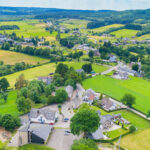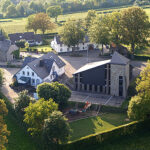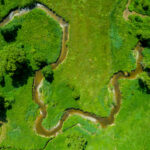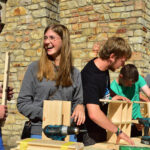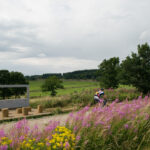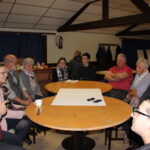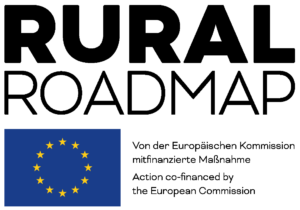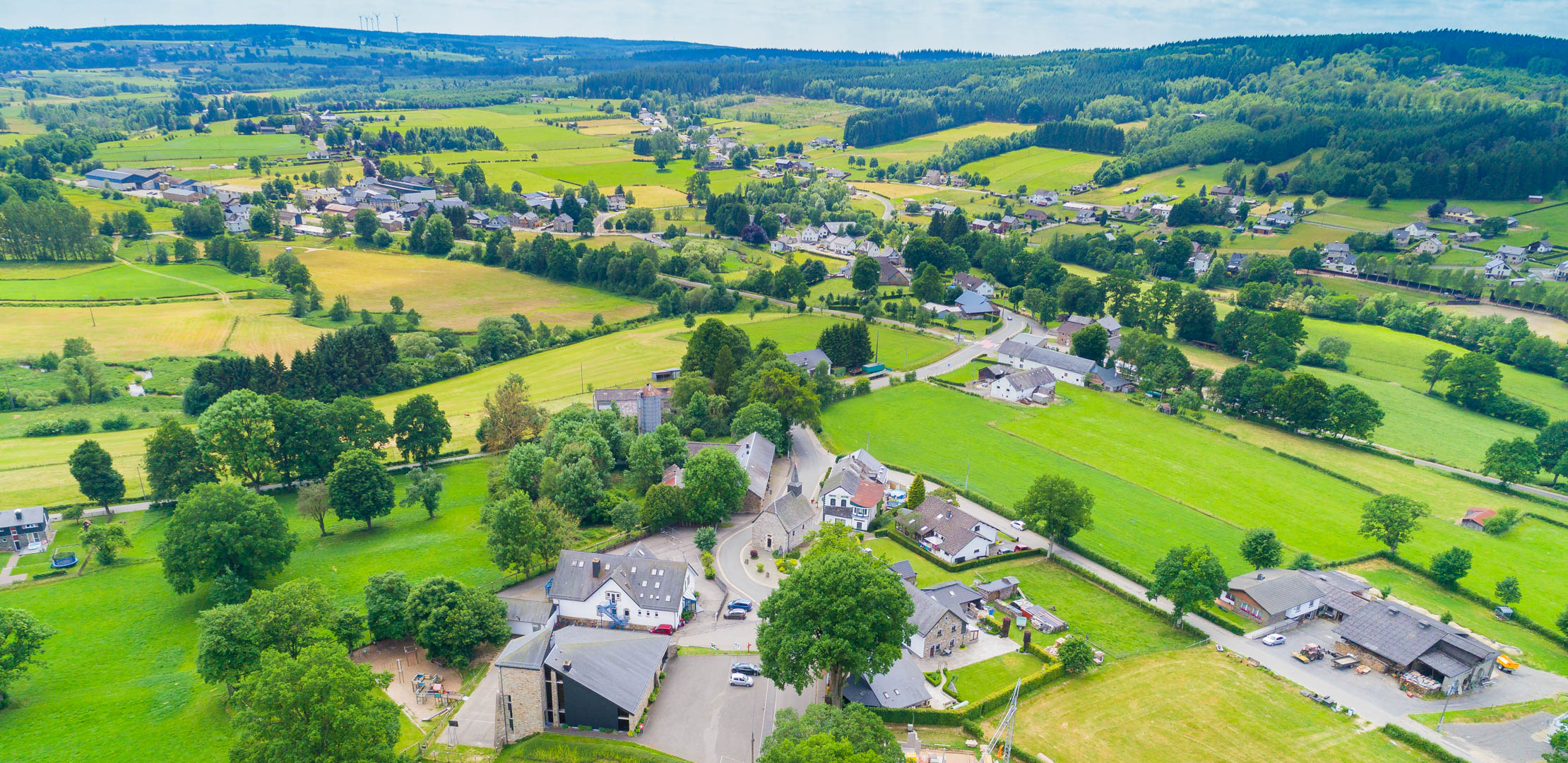
Montenau and Iveldingen, East Belgium, Belgium
Montenau and Iveldingen are two small villages in the Belgian Eifel and have a combined population of about 550. Both villages grew together through a long process but do not have one distinct center. In addition to the decade-long association work including a marksmen’s club house and a music venue as social hotspots, the village group “Montingen” was founded in 2018 and initiated a village development process.
Based on a strengths-and-weaknesses-analysis and with professional instructions, the group created an outline with the slogan “Boundlessly United in the Border Region” and developed extensive perspectives and strategies. The group was able to quickly implement numerous projects and maintain them, even during restrictive times during the Covid pandemic, again making use of external advisors. Professional assistance from architects and spatial planners continues to be sought after. In 2019, the two villages received the Village Renewal Award from the Germanspeaking Community. The local supply infrastructure of both villages is good.
A particular focal point is nature protection including a communal natural development plan ast its foundation. Project data sheets were created for various projects, outlining goals, influences, content and timeframes for each one. Hedges are maintained and protected, and insect hotels, nesting boxes and hedgehog houses are installed, usually together with children. Flower meadows featuring local flowers were also created, they are maintained by a task group boasting inspired exchange among gardening friends. The Amel creek, running through the area of Iveldingen and Montenau, was maintained in its meandering form with adjacent planting. Additionally, the villages border on the so called Wolfsbusch, a large forest with great touristic potential and well-developed trails for cyclists, mountain bikers and hikers. A bicycle path from Aachen to Luxembourg runs directly through the village. A former gold panning facility was revitalized.
Through the constructive collaboration within the village, new citizens are actively and openly welcomed into the community. In respect to spatial development, the municipality provides building lots for young families. These lots are designated for one-family houses. There is a zoning plan from 1977 with extensive designations, making contemporary spatial planning challenging, although its revision is already underway. Due to the so-called “ruin tax”, hardly any buildings in the municipality are vacant. A directory of old house names is currently being created. In regards to renewable energy, a local wind park is in the planning phase.
A unique aspect of the municipality are the numerous voluntary social activities. One example is the “Support for Cancer Patients in Southern Eupen-Malmedy”, which is organized by volunteers and provides transportation for patients to rehabilitation centers or doctor’s appointments. The regional organization is funded exclusively through donations and consists of a network of volunteer drivers.
Additionally, the so called “Heinzeltelefon” was established by the villages, outsourcing small tasks around the house and garden to local volunteers, thus enabling elderly people to remain in their own homes for a longer period. These services are non-commercial; they are exclusively based on volunteer work. A regular board game event for young and old is also currently in planning.
To promote involvement of the population, a village newspaper, the Montinger Dorfnews, was established, and social media such as Whatsapp and Facebook are also used for communication.
Iveldingen and Montenau present themselves as active villages with strong civic engagement and communities who successfully pooled their strengths by uniting as “Montingen”, effectively furthering the communal development based on a professional and sustainable outline. In respect to the competition motto “Local Answers to Global Challenges”, the exceptional efforts regarding nature protection and the numerous social projects supporting elderly and sick people are especially notworthy.
Evaluated: 2020
